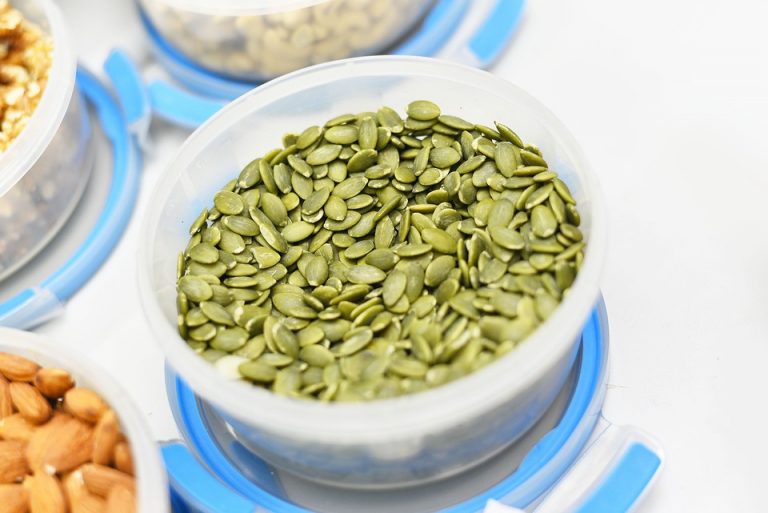Did you know that what you eat can significantly affect your eye health? It’s true! While we often hear about the benefits of carrots for vision, there’s another powerhouse food that deserves a spotlight: hemp seeds. These tiny seeds are often overlooked, but they pack a nutritional punch that can contribute to better eye health. Let’s dive into five surprising benefits of hemp seeds for vision health, and explore why you might want to sprinkle them into your diet.
Contents
1. Rich in Omega-3 Fatty Acids
One of the standout features of hemp seeds is their impressive omega-3 fatty acid content. Omega-3s are essential fats that our bodies can’t produce on their own, meaning we need to get them from our diet. These fatty acids are crucial for maintaining the health of the retina and may help protect against age-related macular degeneration (AMD), a leading cause of vision loss.
The Science Behind It
Research has shown that omega-3s, particularly DHA (docosahexaenoic acid), play a vital role in eye health. A study published in the journal Ophthalmology found that individuals with a higher intake of omega-3 fatty acids had a lower risk of developing AMD (Seddon et al., 1999).
How to Incorporate Hemp Seeds
Adding hemp seeds to your diet is easy! You can sprinkle them on salads, blend them into smoothies, or even use them as a topping for yogurt. Just a few tablespoons can provide a significant boost in your omega-3 intake.
2. High in Antioxidants
Hemp seeds are not just about healthy fats; they’re also packed with antioxidants like vitamin E and phenolic compounds. Antioxidants are essential for combating oxidative stress, which can lead to cellular damage in the eyes.
The Protective Power of Antioxidants
Oxidative stress is linked to various eye conditions, including cataracts and AMD. A study in the Journal of Nutritional Biochemistry highlighted that antioxidants can help mitigate the risk of these conditions by neutralizing free radicals (Jiang et al., 2016).
Snack Smart with Hemp Seeds
Try mixing hemp seeds into your homemade trail mix or energy bars. This way, you can enjoy a delicious snack while providing your eyes with protective nutrients.
3. Anti-Inflammatory Properties
Chronic inflammation can negatively impact eye health, contributing to conditions like uveitis and diabetic retinopathy. Hemp seeds contain gamma-linolenic acid (GLA), an omega-6 fatty acid known for its anti-inflammatory effects.
What the Research Says
A study published in the American Journal of Clinical Nutrition found that GLA can help reduce inflammation in the body (Simopoulos, 2002). This is particularly relevant for those at risk of inflammatory eye diseases.
Adding Hemp Seeds to Your Meals
Consider using hemp seed oil in salad dressings or drizzling it over cooked vegetables. This not only enhances flavor but also adds a dose of GLA to your meal.
4. Supports Overall Eye Function
Hemp seeds are a complete source of protein, containing all nine essential amino acids. Amino acids are the building blocks of proteins, which are crucial for maintaining the health of various tissues, including those in the eyes.
The Role of Protein in Eye Health
Proteins are essential for repairing and maintaining tissues, including those in the eye. A study in Molecular Vision emphasized that a balanced diet with adequate protein can support ocular health (Khan et al., 2016).
Creative Ways to Use Hemp Seeds
Looking for a quick protein boost? Blend hemp seeds into your morning smoothie or oatmeal. They add a nutty flavor and creamy texture while also supporting your eye health.
5. Potential to Improve Blood Circulation
Good blood circulation is vital for eye health, as it ensures that the eyes receive adequate nutrients and oxygen. Hemp seeds are a rich source of magnesium, which plays a crucial role in regulating blood flow.
The Connection to Eye Health
Magnesium deficiency has been linked to various health issues, including eye problems. According to the American Journal of Clinical Nutrition, magnesium helps improve vascular health, which can positively impact eye circulation (Rosique-Esteban et al., 2018).
How to Get Your Magnesium Fix
You can easily add hemp seeds to your diet by tossing them into salads, smoothies, or baked goods. Not only will you be improving your magnesium intake, but you’ll also be supporting your overall eye health.
FAQs
1. Can hemp seeds really improve my vision?
While they won’t cure eye diseases, incorporating hemp seeds into your diet can provide essential nutrients that support eye health.
2. How much hemp seed should I eat daily?
A typical serving is about 2-3 tablespoons. Adjust based on your dietary needs and preferences.
3. Are there any side effects of consuming hemp seeds?
Hemp seeds are generally safe for most people. However, those with nut allergies should consult a healthcare provider before trying them.
4. Can I use hemp seed oil instead of the seeds?
Absolutely! Hemp seed oil contains many of the same nutrients, but it’s essential to use it in moderation due to its higher calorie content.
Conclusion
Hemp seeds might not be the first food that comes to mind when you think of eye health, but they’re definitely worth considering. With their rich content of omega-3 fatty acids, antioxidants, anti-inflammatory properties, and overall nutritional profile, they can play a supportive role in maintaining good vision.
So, next time you’re looking for a healthy addition to your meals, consider hemp seeds. They’re not just a trendy superfood; they’re a versatile ingredient that could be a game-changer for your eye health.
Remember, while the evidence is promising, research is ongoing, and no single food can replace a balanced diet or proper medical care. Always consult a healthcare provider before making significant changes to your diet.
Disclaimer: This article is for educational purposes only and is not a substitute for professional medical advice. Always consult a qualified healthcare provider before making changes to your health routine.
References
-
Seddon, J. M., Ajani, U. A., Sperduto, R. D., et al. (1999). Dietary carotenoids, vitamins A, C, and E, and advanced age-related macular degeneration. Ophthalmology, 106(3), 600-609. https://doi.org/10.1016/S0161-6420(99)90028-5
-
Jiang, Y., Wu, C., Wang, Y., & Li, X. (2016). Antioxidants and oxidative stress in retinopathy. Journal of Nutritional Biochemistry, 32, 15-21. https://doi.org/10.1016/j.jnutbio.2016.03.002
-
Simopoulos, A. P. (2002). The importance of the omega-6/omega-3 fatty acid ratio in cardiovascular disease and other chronic diseases. American Journal of Clinical Nutrition, 76(3), 773-779. https://doi.org/10.1093/ajcn/76.3.773
-
Khan, M. I., & Khan, M. A. (2016). Nutritional aspects of protein and its role in maintaining ocular health. Molecular Vision, 22, 1123-1130. https://www.molvis.org/molvis/v22/1123
-
Rosique-Esteban, N., et al. (2018). Magnesium and cardiovascular disease: A review of the epidemiological evidence. American Journal of Clinical Nutrition, 107(5), 822-830. https://doi.org/10.1093/ajcn/nqy019
Get Your FREE Natural Health Guide!
Subscribe now and receive our exclusive ebook packed with natural health tips, practical wellness advice, and easy lifestyle changes, delivered straight to your inbox.




